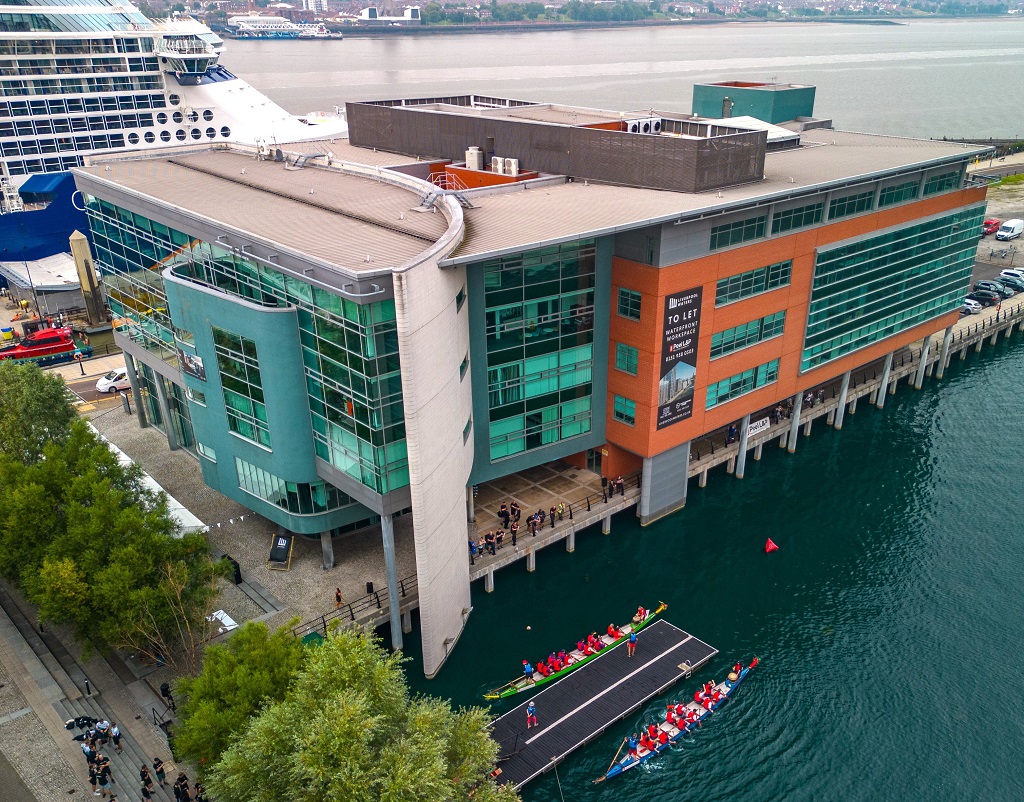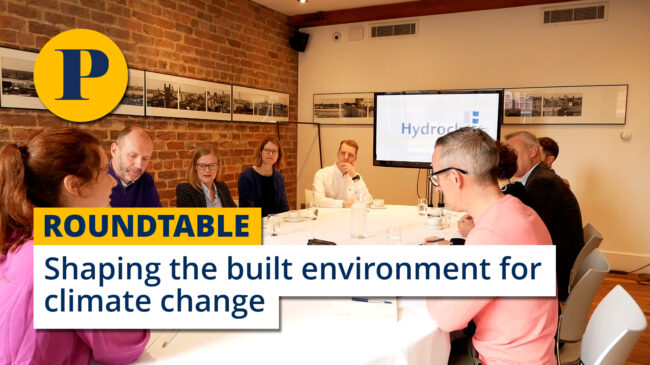Ready for Change – the first Place Low Carbon Forum
 There are inestimable problems posed by climate change but the region's property professionals have the expertise and resources to meet the challenge, was the key message when more than 70 delegates attended Place's Low Carbon Forum at the Manchester office of Halliwells LLP.
There are inestimable problems posed by climate change but the region's property professionals have the expertise and resources to meet the challenge, was the key message when more than 70 delegates attended Place's Low Carbon Forum at the Manchester office of Halliwells LLP.
The event was sponsored by Envirolink Northwest, the Environment Agency, Halliwells LLP and Beever and Struthers.
The first of two keynote presentations was delivered by Helen Hensel, senior surveyor in sustainability team at Drivers Jonas Deloitte who outlined the findings of DJD's Towards a Sustainable Commercial Property Sector report for Manchester City Council.
The hard-hitting report aims to set out a route-map for cutting 41% of CO2 emissions in Manchester by 2020. Suggestions in the report include devising incentives to encourage developers to improve the carbon performance of their buildings, and establishing better tools for measuring and displaying the energy 'scores' for buildings, perhaps with live counters on the outside of premises.
There could also be a Northern Quarter pilot project to test smart meters on buildings and an updated Manchester Guide to Developments.
Paying for green infrastructure could come from a new development levy to raise funds for the council to improve transport, waste and energy facilities.
In the second keynote address of the event, Nick Storer, chief executive of Envirolink Northwest, addressed delegates on the opportunities for businesses and residents in the North West to tap into renewable energy.
The region has the largest potential for wind energy generation in Europe, Storer said, but the UK has fallen behind Denmark, Germany and Spain in the wind turbine manufacturing industry.
The red tape of planning has entangled many schemes, with 259 applications for wind farms awaiting planning decisions.
For domestic residents, the Feed-in-Tariffs provide the opportunity to make cash from small-scale energy generation through selling it into the National Grid.
In the panel discussion later, John Jones, partner at Beever and Struthers, said more needed to be done to raise the profile of schemes such as FiTs to ensure they were taken up.
The expert panel debate which rounded off the event featured Ian Mauditt, director of building sciences at RSK Group, Andrew Piatt, partner and head of property at Halliwells LLP, David Ritter, partner at architects BDP, and Dr Andrew Karvonen from Manchester Architectural Research Centre and Iain Taylor, partnerships manager at Peel Holdings.
Peel's Taylor gave an update on the Mersey Tidal Power project, which he said is undergoing a detailed feasibility study to determine the preferred option for a tidal energy scheme on the Mersey Estuary. The work is due to be completed by December 2010 with the preparation of the planning documentation through to the end of 2011.
Taylor added: "We are working to have planning approval and be in a position to start work by 2015 and complete and operational by 2020.
"The early phases of the feasibility considered all available, and some emerging, technologies and considered their applicability to the Mersey Estuary with a number of options ruled out. The long listed options are now going through a more detailed assessment to take into consideration a range of issues including the environment, navigation, economic benefit and commercial viability.
The options include horizontal-axis turbines in an impounding barrage or a tidal gate comprising Hydromatrix turbines and creating a very low-head barrage.
Roundtable discussions in the middle of the half-day conference revolved around five topics: transport, energy, build, regulation and finance.
Among the findings, there was a consensus the biggest challenge for property remains retrofitting the millions of homes in the UK to a suitable low carbon standard.
On transport, it was highlighted that it is important to take a holistic approach to urban design if low carbon is to make sense. Dr Andrew Karvonen gave the example of naturally ventilating offices and stopping air conditioning but opening the window only to let in car fumes from the street below. We need to reduce car use to make the air worth breathing.
- Be part of our Green Week on Place, beginning 17 May. Email paul.unger@placenorthwest.co.uk with your North West low carbon stories, case studies and reports and to request a synopsis



